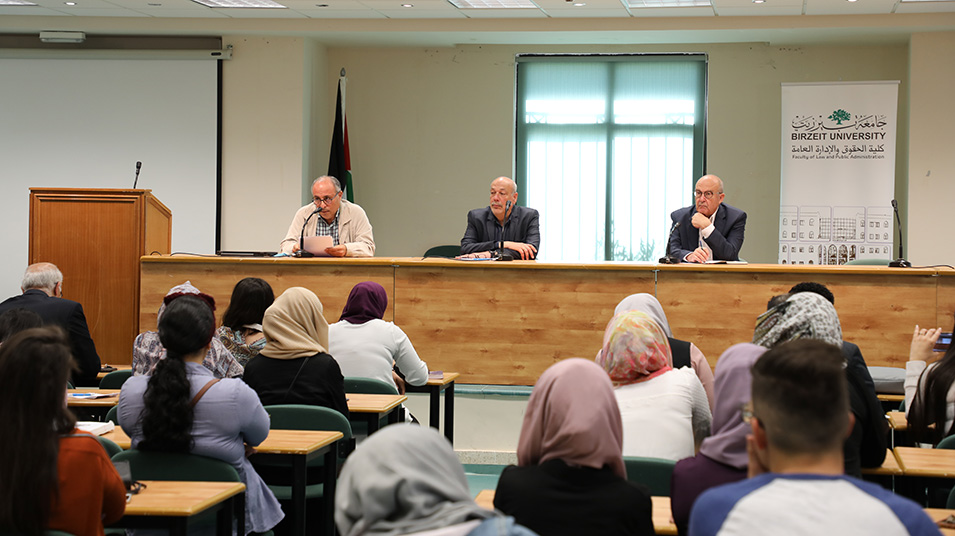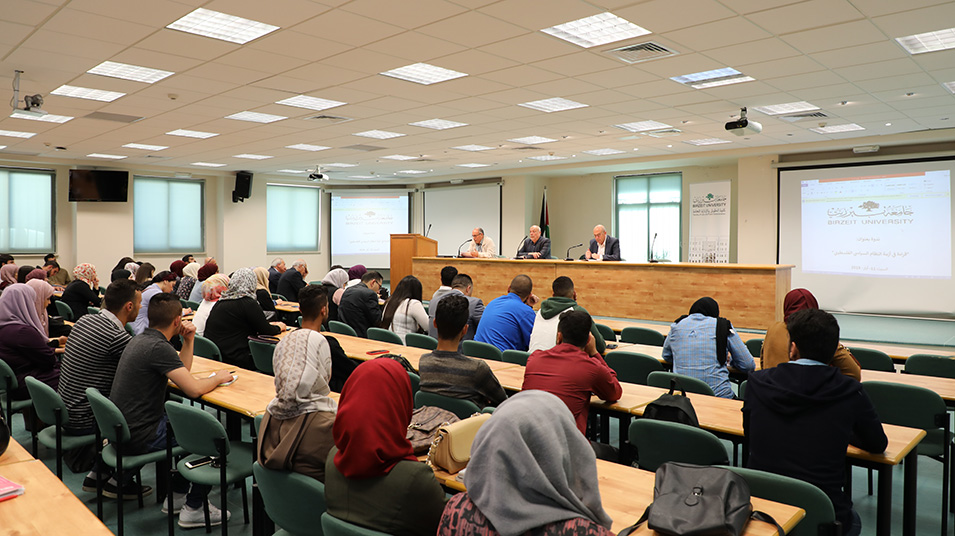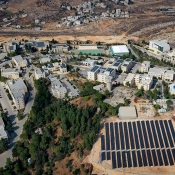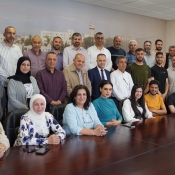Political science professors, students delve into Palestinian political system in department seminar
Political science students discussed the realities and future of the Palestinian political system in a seminar organized by the Department of Political Science in the Faculty of Law and Public Administration on Saturday, May 11, 2019.
Led by Basem Ezbidi and Ali Jarbawi and chaired by Abderrahman Ibrahim, professors of political science at the university, the seminar focused on whether the Palestinian political system, beset with internal issues and external pressures, can sustain itself and carry out its intended functions.
Ezbidi began his statement by noting the exceptional nature of the Palestinian political system, cautioning that researchers and students should approach this matter with due diligence and pointing out that the borders, functions, and limitations of the system are vague or otherwise ill-defined because it exists alongside a liberation movement.
The political system in Palestine, explained Ezbidi, is marked by a number of themes and elements that exacerbate the crises it is facing, namely the unclear relationship and power dynamics between the Palestinian Authority and the Palestine Liberation Organization, the domination of the executive branch over the Palestinian government, the clientelism and tribalism plaguing Palestinian institutions, and the political division between Hamas and Fatah that has resulted in two warring governments in Gaza and Ramallah.
Jarbawi, agreeing with Ezbidi, opened his statement by referring to the political system in Palestine as vague and indistinct, ascribing this condition to the fact that it exists within a state that is undecided on whether to follow state-building or liberation goals.
The system, added Jarbawi, faces a number of existential challenges: it was established as merely a transitional instrument that is now used as a permanent system of government that has to function under significant limitations and with limited sovereignty. Also, rather than on a set of government institutions, it relies on a charismatic leader to hold it together.
Jarbawi, explaining the threats that affect the Palestinian political system’s sustainability, pointed out that the Palestinian government must defend its diminishing authority and sovereignty against encroachments by the Israeli civil administration; financial resources in the Palestinian territories are dwindling as international funding has been severely curtailed while there is no financial base from which the government could obtain revenues and finance itself (i.e., the system is designed to rely on international funding); and the system’s dependency on a personality rather than institutions has resulted in power struggles that threaten to upend the entire establishment.
Finally, Jarbawi noted two challenges, stating that Palestinians question both, the legitimacy of the political system, as it increasingly relies on the executive branch to support government functioning, and its approach to core values such as the rule of law, separation of powers, citizen representation in the government, government accountability, and public liberties.
At the end of the presentation, Ibrahim commented on the issues raised by the speakers and gave the floor to the attending students who inquired on the future of the Palestinian political system.








